We’re awash with experimental statistics this week! So far it looks as though Covid hasn’t resulted in mass (early) drop outs. There’s more detail on the Lifetime Skills Guarantee and the Education committee has been grilling the Minister on exams.
Sustainability
The Higher Education Policy Institute (HEPI) has published a report Beyond business as usual: Higher education in the era of climate change
The paper describes how four areas of activity for universities:
- Redesigning the day-to-day operations of universities and colleges to reduce emissions, nurture biodiversity and adapt to the impacts of a changing climate;
- Reinvigorating the civic role of institutions to build ecologically and socially resilient communities;
- Reshaping the knowledge structures of the university to address the interdisciplinary complexity of climate change;
- Refocusing the educational mission of the institution to support students to develop the emotional, intellectual and practical capacities to live well with each other and with the planet in the era of climate change
And the paper recommends that universities and colleges should:
- reconfigure their day-to-day operations to achieve urgent, substantial and monitored climate change mitigation and biodiversity enhancement action in accordance with Paris climate commitments and the Aichi biodiversity targets.
- develop a clear operational plan for implementing climate change adaptation measures developed in partnership with local communities.
- develop an endowment, investment and procurement plan oriented towards ecological and economic sustainability.
- develop a civic engagement strategy that identifies how to build stronger partnerships to create sustainable futures.
- explore how they can rebalance their educational offerings to support older adults transitioning away from high-carbon forms of work.
- examine the institutional barriers – historic, organisational, cultural – to building dialogue across disciplines and with knowledge traditions outside the university and establish the institutional structures and practices needed to address these barriers.
- initiate an institution-wide process to bring together staff and students to develop programmes that are adequate to the emotional, intellectual and practical realities of living well with each other and with the planet in the era of climate change.
Three proposals are made for nationwide interventions that will actively support the proposals above:
- The Business, Energy and Industrial Strategy Research Roadmap (in partnership with devolved administrations) should establish a ‘moonshot’ research programme oriented to ensuring that all university and college operations in the UK (including academic and student travel) have zero carbon emissions by 2035, with a 75 per cent reduction by 2030; www.hepi.ac.uk 11
- A £3 billion New Green Livelihoods programme should be established to support educational activities that will enable debt-free mass transition of older adults from carbon-intensive employment towards creative sustainable livelihoods;
- The year 2022 should be designated a year of ‘Sustainable Social Innovation’ involving a programme of mass public education, in partnership between the BBC, universities and colleges and the Department for Business, Energy and Industrial Strategy; this should engage over two million people in collective learning for the changing conditions of the climate change era.
Research Professional cover the story:
Research
Innovation Catapults
The Lords Science and Technology Committee ran two sessions into their inquiry on The contribution of Innovation Catapults to delivering the R&D Roadmap. The second session also covered the performance of the Catapult network in the context of various performance reviews and how Catapults might evolve going forward. Dods have summarised the key discussions from the two sessions here.
Research Repository
Dods report that Jisc have launched
- a new multi-content repository for storing research data and articles that will make it easier for university staff to manage the administration around open access publishing.
- …it will allow institutions to meet all Plan S mandatory requirements and other funder and publisher mandates for open scholarship.
- Developed with input from the research sector, the research repository allows institutions to manage open access articles, research data and theses in a single system.
- The research repository is a fully managed ‘software-as-a-service’ provision, which is hosted on a secure cloud platform. Included in the service is an in-built ‘FAIR checker’ to make sure research data is ‘findable, accessible, interoperable and reusable’.
- Jisc also offers research systems connect, a preservation service and research repository plus: a single service to manage, store, preserve and share digital research outputs.
Net Zero: The Royal Society has a new report on the planet and digital technologies. It finds that digital technologies such as smart metres, supercomputers, weather modelling and artificial intelligence could deliver nearly one third of the carbon emission reductions required by 2030. The report makes recommendations to help secure a digital-led transition to net zero, including establishing national and international frameworks for collecting, sharing and using data for net zero applications, as well as setting up a taskforce for digitalisation of the net zero transition
Tech industry warns of impact of Covid-19 on R&D activity: techUK have attracted attention through the written evidence they submitted to the House of Commons Science and Technology Committee inquiry on the role of technology, research and innovation in the Covid-19 recovery. techUK stated that technology, research and innovation organisations had to find new ways of interacting, engaging and working with its staff, customers, and partners during the pandemic. They also:
- identified barriers to the commercial application of research that have emerged from the crisis, particularly in sectors where firms have had problems accessing study participants for clinical trials or market research
- outlined a number of short-term measures the government’s R&D roadmap could take to support research and innovation, including long-term investment in key computing infrastructures and more adaptable and flexible funding support
Open Access Switchboard: Dods report that UKRI, Wellcome and Jisc are among the first organisations supporting the establishment of a new body called Open Access Switchboard. The switchboard will help the research community transition to full and immediate open access and simplify efforts to make open access (OA) the predominant model of publication of research.
PhD Students: UKRI have issued a response to the UCU open letter on treatment of UKRI funded PhD students. Full response letter here. UKRI state they tried to balance a range of factors in developing their policy of support but had to make difficult decisions in the circumstances. They reiterate the financial resources made available, and explain the rationale of their decisions.
Ageing: From Wonkhe: UK Research and Innovation has relaunched the Health Ageing Catalyst Awards, with help from venture capital firm Zinc, to help researchers commercialise work around the science of longevity and ageing. Researchers can apply for up to £62,500, as well as coaching and mentoring over a nine-month period, with a series of workshops beginning in January 2021.
REF Sub Panel: Research Professional write about the announcement of the REF sub-panel appointees.
- More than 400 academics have been picked to sit on the Research Excellence Framework 2021 assessment sub-panels.
- The sub-panels will assess submissions between May 2021 and February 2022, working under the four main panels that oversee the process and sign off the final recommendations from the sub-panels to be used in the REF.
- The REF team said the new sub-panel members “include leading researchers from across a range of universities in the UK and beyond, and experts in the use and benefits of research who will play a key role in assessing the wider impact of research”.
- The new appointments bring the total number of panellists, including observers, on the main and sub-panels to 1087. Some further appointments are still to be made, filling remaining gaps in expertise.
- The sub panel is expected to recognise the calls for more diversity among panel members
Lifetime Skills Guarantee
Education Secretary Gavin Williamson has announced further detail on the Lifetime Skills Guarantee which will support adults aged 24+ to achieve their first full level 3 qualification (i.e. a technical certificate or diploma, or full A levels) from April 2021. The list of qualifications available under the Guarantee is here including engineering, healthcare and conservation and is expected to flex to meet labour market needs. Awarding organisations, Mayoral Combined Authorities and the Greater London Authority will be able to suggest additions to the list.
The Lifetime Skills Guarantee also includes the Lifelong Loan Entitlement which will provide set funding for people to take courses in both FE colleges and universities at their own pace across their lifetime. (I.e. if you use it all at once that was your bite of the cherry.) The Government say the funding will allow providers to increase the quality and provision of their own offer, as well as directly benefiting individual learners.
The Written Ministerial Statement on the Lifetime Skills Guarantee is here.
International
The Office for Students has updated advice on student visas for international students.
Admissions – Exams
Exams cancelled: Scotland have cancelled their 2021 Higher and Advanced Higher (A level equivalent) exams. Pupils will now receive grades based on teacher assessments of classroom work throughout the year. With Wales having cancelled their exams too renewed noise has erupted over the DfE’s stance for England to continue with exams in the revised format. Questions are raised over whether, with some nations shunning and some taking exams, whether it creates a level playing field for universities admissions. However, the minister for school standards rejected this in Tuesday’s Education Committee session stating that universities were experienced in managing different qualifications from across the world as well as the UK. And as such universities are well placed to ensure equitable decisions regarding places even with differing exam regimes across the UK.
During the first session of the Education Committee meetings on Tuesday Glenys Stacey (Ofqual) responded to the Committee’s concerns of exam grade hyperinflation stating that universities would be able to manage the rise in higher grades through their admissions processes and that the OfS would monitor for fairness.
Exam petitions: If you have a particular interest in following the exams news there was a Westminster Hall debate covering the covid-19 impact on schools and exams and it also considered all four petitions on the matter:
Education Committee: The Education Committee has released 3 letters. The first two are from Gavin Williamson responding to Committee requests on the 2020 exams issues (or rather maintaining his original position and not supplying further information). The third from Committee Chair Robert Halfon trying to obtain the requested information.
The issue of not sharing information was raised during Tuesday’s Education Committee session too – the Civil Service got the blame. Robert Halfon (Committee Chair) stated the Secretary of State for Education, and the Minister for School Standards, had undertaken to provide the committee with departmental documents pertaining to the school examinations matter and questioned why those documents had not yet been provided.
Nick Gibb, Minister for School Standards, responded that the department intended to be as open and transparent as possible, and had offered to provide summaries of the various meetings that had taken place over the summer and were relevant to the committee’s inquiry. The difficulty with providing further internal documentation, however, related to the privacy of civil servants and the principles of how the civil service operated.
Mearns (a Committee member) raised concerns that the department appeared to be hiding issues that they did not want the committee to know about – Gibb rejected this. He reiterated that the civil service operated on principles that had to be protected and that within those constraints the department would seek to meet the committee’s requests.
Dods have provided a summary of the Education Committee session here.
Grades: Wonkhe have a new blog: We’re used to arguments about how reliable predicted grades are, but how reliable are actual grades? Dennis Sherwood introduces the disturbing truth that in some A level subjects, grades are “correct” about half of the time.
Other Admissions methods: Wonkhe on A level exams:
- The commonly cited idea that “everybody else does post-qualifications admissions” is a little misleading. What stands out for us is the absence of high stakes examinations in the years before university study. The dominant model is one that takes into account all of a person’s performance in the final years at school – centre assessed grades, in other words. Couple this with a less stratified higher education sector, and a dominant regionality, and things look very different from what we know in the UK.
- The existence of the A level as a totemic “gold standard”, and the peculiarly British hang-up around comparative provider status, means that the UK will always be an outlier. But there is a lot we can take away from understanding how things work elsewhere, and there would be a case for lowering rather than raising the exam stakes in our existing system.
Last week the policy update showcased how Ireland and Australia do admissions. Here are the versions from Finland and Canada.
NSS Review
Wonkhe remind us that the OfS are due to report on the first phase of the review of the National Student Survey before January. Wonkhe say: The English regulator is hampered by the fact that the NSS is a UK-wide initiative, and the unique political pressures that drove the Department for Education to act do not apply in Wales, Scotland, and Northern Ireland. But the latter two nations are not represented on the NSS review group – neither are current students.
And they have a blog – Gwen van der Velden, who was on the group that reviewed the NSS in 2017, fears that this years’ expedited and politicised review could do lasting damage to a sector that is well aware of the value of the survey: A shortened review, done in difficult times, and without proper representation on the review panel will not improve the National Student Survey, says Gwen van der Velden.
Graduate Outcomes
Prospects & Jisc published What do Graduates do? It draws on the HESA Graduate Outcomes 2017/18 data which surveys first-degree graduates 15 months post-graduation. There is a wealth of information in the report which there isn’t the space to do justice to here, including individualised breakdowns for the major study groupings.
- The majority of graduates were employed 15 months after graduating
- 5% were unemployed and looking for work
- 8% of employed graduates were in a professional-level job
- 66% went to work in their home region of the UK
- 12% of graduates were in further study
- The average salary for graduates who went straight into full-time employment in the UK was £24,217
The report also includes insights from careers experts across a variety of sectors and subjects. And page 11 looks at understanding graduates feeling through data – and has some interesting insights at subject level. Below we cover OfS’ interpretation of the data generalised to the whole student population below. The value for money section is worth a read too (page 12), here’s a teaser:
- The term ‘value for money’ hasn’t so much crept into higher education discourse in the past few years as waded right in and sat itself at the top table.
- … So, it would appear at first glance that the graduate voice does start a new narrative to what has been arguably an over-metricised scrutiny of graduate destinations. It demonstrates a real opportunity to draw a subjective narrative of value and success to our understanding of what our graduates progress into. The question remains to what extent such rich information will be utilised across the sector to reinvent how we project the value of higher education for our prospective students. Building a true graduate voice of value and success has to count for something – and why shouldn’t it?
Wonkhe have a blog – Charlie Ball looks to the latest graduate outcome data to tell us whether graduates can expect improved prospects next year.
Graduate Wellbeing: OfS published a summary on the wellbeing of graduates 15-months post-graduation, as reported in the Graduate Outcomes survey, actual data available here. Here are some of the findings:
- Graduates rated their life satisfaction and happiness less highly than the general population.
- Graduates were more anxious than the general population, with those who had previously studied full-time reporting the most anxiety.
- Out of all graduates, those who were unemployed were the least satisfied with their life, had the lowest level of feeling that the things they do in life are worthwhile, and were the least happy. Those who were unemployed were also the most anxious.
- In general, older graduates were more likely to score highly for life satisfaction, the feeling that things done in life are worthwhile and happiness than younger ones.
- Those graduates who had reported a mental health condition during their studies were more anxious than those who had not.
- Female graduates reported higher life satisfaction, the feeling that things done in life areworthwhile and happiness than men, although women were more anxious.
Note – All findings are based on the proportion of graduates scoring ‘very high’ for life satisfaction, feeling the things done in life are worthwhile and happiness, and the proportion of graduates scoring ‘very low’ for anxiety.
Student Covid Insights Survey
The Office for National Statistics (ONS) published experimental statistics from a pilot of the Student Covid Insights Survey (conducted November 2020), which aimed to gather information on the behaviours, plans, opinions and wellbeing of HE students in the context of the pandemic. Key findings:
- An estimated 56% of students, who live away from their home (usual non-term address), plan to return home for Christmas.
- Of those who responded, more than half (57%) reported a worsening in their mental health and well-being between the beginning of the autumn term (September 2020) and being surveyed.
- Students are significantly more anxious than the general population of Great Britain, with mean scores of 5.3 compared with 4.2 respectively, (where 0 is “not anxious at all” and 10 is “completely anxious”).
- Student experience has changed because of the coronavirus; considering academic experience, 29% of students reported being dissatisfied or very dissatisfied with their experience in the autumn term.
- Over half (53%) of students reported being dissatisfied or very dissatisfied with their social experience in the autumn term.
Access to the data is from this webpage. On Wonkhe: Jim Dickinson says “they were promised blended. They’re not getting it.”
Student Transfers
The OfS have released experimental statistics on student transfers (students transferring course or institution). When analysed by student characteristics some familiar themes emerge. You can read the full report here.
In 2017/18 full time first degree students:
- 5% transferred internally (same provider) with credit
- 5% transferred to a different provider with credit
- Students tend to transfer (with credit) after their first year, less transfer at the end of year 2. However, of those that do 0.2% transfer externally, 0.1% internally.
- Students who want to change course without credit may have to restart a course. For students studying at the same provider, there is more than triple the number of students who restart a different course without carrying credit (1.7%) than students who transfer to a different course with credit (0.5%).
Moreover, this gap has been increasing across time as the proportion of students who restart increases and the proportion of students who transfer decreases.
- At a new provider 1% of students who studied the same subject did not carry credit, those with credit studying same subject area (0.4%).
Age group and underrepresented neighbourhoods (POLAR4): Students from the areas of lowest higher education participation (POLAR4 quintile 1) were the most likely to transfer without credit. The most underrepresented students studying at the same provider were more likely to restart their course (4.7 per cent) than more represented students (3.1 per cent of quintile 5 students).
Ethnicity: Black students are the ethnic group most likely to start again when studying the same course at the same provider or the same subject area at a different provider. 9.1 per cent of black students restart the same course, and 2.0 per cent repeat their year when moving to a different provider.
Entry qualifications: Students with BTECs as their main entry qualification are the group most likely to restart a course at the same provider (2.5 per cent on a different course and 7.2 per cent on the same course). They are also the least likely to transfer internally with credit (0.4 per cent).
Sex: Male students are more likely to transfer within a provider than female students. However, male students transferring to a different provider are more likely to carry credit in a different subject area, but less likely to do so in the same subject area.
Disability: Students with a reported disability studying at the same provider are more likely to change course than students with no reported disability. Similar proportions of students with and without a reported disability transfer to a different provider.
Sexual orientation: LGB students are more likely to restart in a different course without credit, and students with other sexual orientation are more likely to restart the same course without credit than heterosexual students.
Care experience: Students who have been in care are more likely to restart their original course or a different course at their provider than other students. For students studying at a different provider, a higher proportion of care experienced students have to start from the beginning, whether or not the subject area was different.
January return
iNews questions whether students will follow the guidelines to stay away from their accommodation until their later January return date without rent refunds. NUS president Larissa Kennedy said: If students are advised not to be in their accommodation from December – February, then the Government must put up more money to support student renters who will be paying hundreds or thousands of pounds for properties they are being told not to live in for months. Students are already struggling to make ends meet without having to line the pockets of landlords for properties they should not use on public health grounds.
Wales and Scotland have also announced the staggered return for students in January.
Student Withdrawals – no Covid effect…yet?
At the end of last week the Student Loans Company published ad hoc experimental statistics on early-in-year student withdrawal to meet the significant public interest in this data in order to contribute towards an understanding of how the COVID-19 pandemic may be impacting students. It covers withdrawals up to 29 November of each year.
SLC has not seen any increase in student withdrawal notifications for the purpose of student finance in this academic year, compared to the previous two years. SLC go on to note it was actually slightly lower in 2020 than in previous years.
However, a caveat:
The irregular start to AY 2020/21 caused by the COVID-19 pandemic has included a number of courses starting later than in previous years, some universities extending the ‘cooling off’ period before the student becomes liable for tuition fees and, more generally, an increase in the potential for administrative disruption. It is possible these irregularities may have resulted in HEPs providing withdrawal notifications to SLC later. Therefore, while the two previous years’ data has been provided for comparison, any conclusions should be made with caution noting the irregularities of this academic year and the early in-year nature of the data sets.
SLC’s analysis is available here. Wonkhe have two related blogs:
Access & Participation
HEPI published a new blog – Widening participation for students with Speech, Language and Communication needs in higher education.
- It is reasonable to ask why policy should fund widening participation for this group. One answer for this would be that there is a strong link between communication skills and social disadvantage. Factors such as being eligible for free school meals and living in a deprived neighbourhood mean children are 2.3 times more likely to be recognised as having an SLCN. In deprived areas 50 per cent of children start school with delayed language skills. Shockingly, the vocabulary level of children at age five is the best indicator of whether socially deprived children would be able to escape poverty in their later adult life.
- Just 20 per cent of pupils with SLCN achieved 5+ GCSEs at grades A* to C including English and Mathematics. This compares to 70 per cent of pupils with no identified special educational needs (SEN) – an attainment gap of 50 per cent.
- When asked about what higher education settings can do to widen participation, Nicole [a speech and language therapist] stated:
- “When it comes to participation I would say that staff need to know their students’ needs. If they know how students respond and how best they work (need for repetition, visual support, verbal support, 1;1 support) then they can make education more accessible.
- Training is important and so is advocacy. Even if universities know how to support students, they also need to advocate and speak up for them! They can’t always do that for themselves which often means that they don’t get what they need and end up in challenging situations.”
- There is much that higher education institutions can do but they need to be properly supported by the Government to provide these early interventions that are necessary. Underfunding is a huge issue for those with SLCN and waiting lists ‘are now almost exceeding 18 months’.
- With specialised funding into primary level institutions, participation is likely to widen in universities as more students will have been diagnosed and received crucial interventions at an early age when these are most effective. Support post-secondary will help bridge the gap between compulsory education and higher education. This will assist students with SLCN to still receive support in a new environment when facing different scenarios. Finally, awareness and training of staff in higher education will help induce an inclusive atmosphere – one in which some students no longer need to bend to fit an archaic system.
Inquiries and Consultations
Click here to view the updated inquiries and consultation tracker. Email us on policy@bournemouth.ac.uk if you’d like to contribute to any of the current consultations.
Other news
DfE: Susan Aclan-Hood has been confirmed as the Permanent Secretary for the DfE, after a short stint as the “acting” head of the Department in Whitehall.
Environment: Dame Glenys Stacey has been selected as the Government’s preferred candidate to become the Chair of the Office for Environmental Protection.
Nursing shortages: The Health Foundation has published a report on nursing shortages. Excerpts:
- There has been some growth in the nursing workforce in recent months, in part as a result of rapid scaling up to meet COVID-19-related surge capacity, but concerns regarding shortages remain.
- The current profile of the NHS nursing workforce is characterised by significant vacancies across the workforce. These vacancies are more noticeable in some specialties (eg learning disabilities and mental health) and some geographic regions (eg London).
- The four domestic supply routes into UK nursing are markedly different in current volume, and in terms of scope for rapid scaling up.
- The main route is the undergraduate entry to a university degree course. This inflow has grown significantly this year (by about 20%) but has a 3-year time lag between entry and qualification and has capacity constraints, along with concerns about clinical placement requirements.
- The second route, via the 2-year graduate entry (accelerated) programme is smaller in number but has been identified as having scope for increase.
- The third domestic route is the apprenticeship scheme, which is relatively new and reportedly has funding constraint issues, but is now receiving some additional funding. The nursing associate route is the most recent, is growing in numbers and has scope for bridging to an undergraduate nursing course.
- The other source of new nurses is international recruitment… An examination of recent trends highlights a significant growth in recruitment from non-EEA countries, and an upward trajectory of active recruitment, with policy changes and NHS funding allocated to support further increases. It is apparent that international recruitment, currently constrained by COVID-19, and potentially facing change driven by the post-Brexit immigration system, will be a critical determinant in the NHS meeting the 50,000 target.
A parliamentary question confirms there are no plans to reintroduce paid contracts for student nurses on placements in NHS hospitals.
The House of Commons Library has published a research briefing on student loans. These are always interesting reminders and usually suggest a question or two from MPs and maybe an upcoming discussion.
Naughty or Nice? Finally, for a little light-hearted relief as we move closer to the Christmas break Opinium polling (page 8) tells us who the nation expects to be on Santa’s naughty and nice list:
Christmas closure
We’ll deliver a light touch policy update (key news only) a little early next week to help you remain up to date as the university moves towards the Christmas closure period.
Subscribe!
To subscribe to the weekly policy update simply email policy@bournemouth.ac.uk. A BU email address is required to subscribe.
External readers: Thank you to our external readers who enjoy our policy updates. Not all our content is accessible to external readers, but you can continue to read our updates which omit the restricted content on the policy pages of the BU Research Blog – here’s the link.
Did you know? You can catch up on previous versions of the policy update on BU’s intranet pages here. Some links require access to a BU account- BU staff not able to click through to an external link should contact eresourceshelp@bournemouth.ac.uk for further assistance.
JANE FORSTER | SARAH CARTER
VC’s Policy Advisor Policy & Public Affairs Officer
Follow: @PolicyBU on Twitter | policy@bournemouth.ac.uk
 , bookstagramming and digital author Michael Joyce’s bedtime reading.
, bookstagramming and digital author Michael Joyce’s bedtime reading.
 Genoveva Esteban and Katie Thompson are excited to announce the launch of a new website,
Genoveva Esteban and Katie Thompson are excited to announce the launch of a new website, 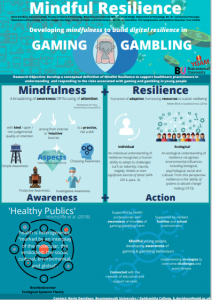
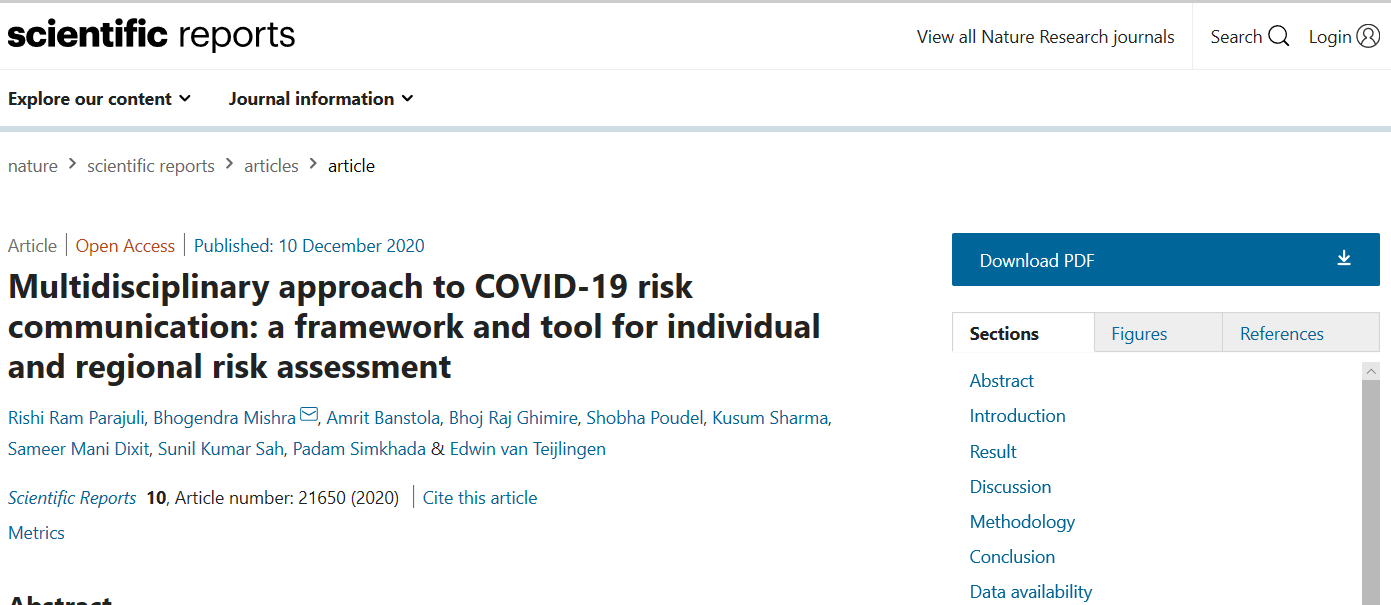
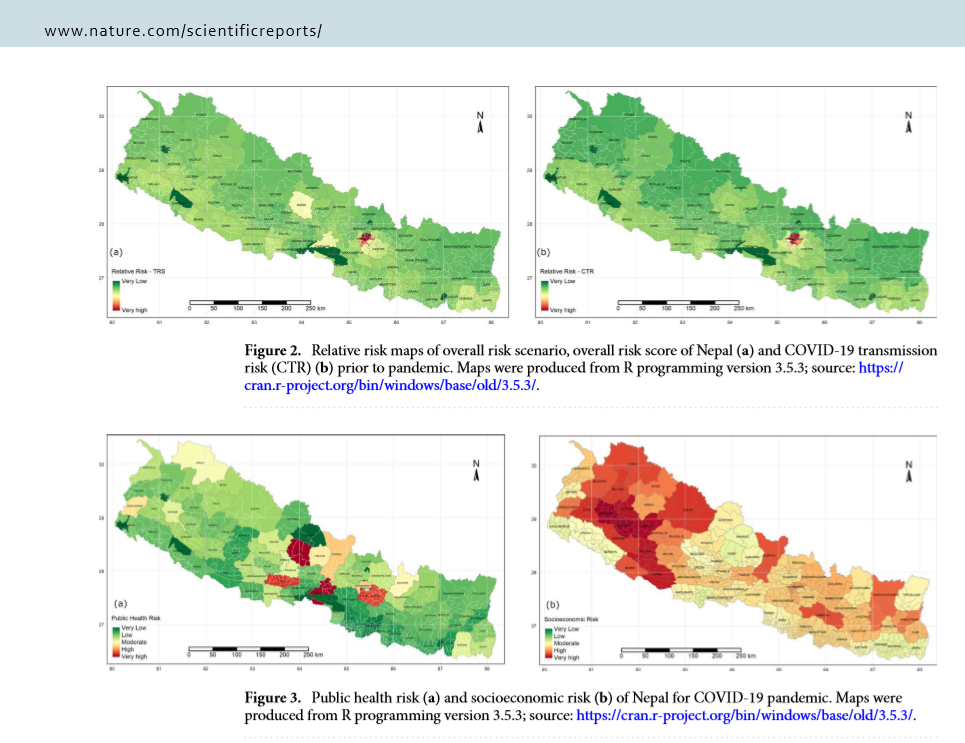
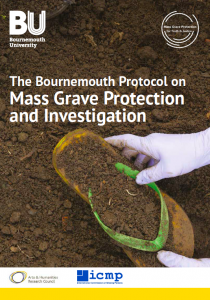
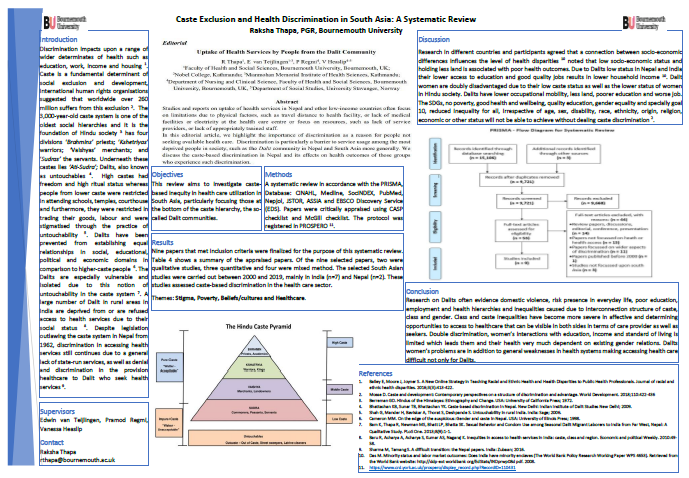
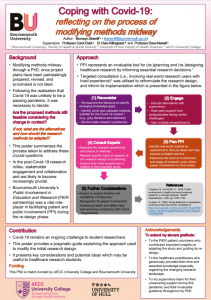
 As published a couple of weeks ago, RDS have worked with Faculty DDRPPs to ensure greater transparency around the recent changes to the bidding approval process, and to ensure that research remains a key activity for our academics.
As published a couple of weeks ago, RDS have worked with Faculty DDRPPs to ensure greater transparency around the recent changes to the bidding approval process, and to ensure that research remains a key activity for our academics.
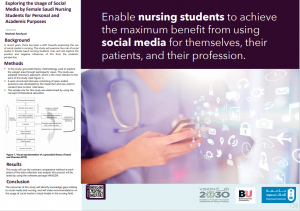
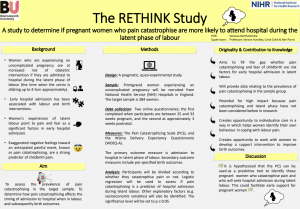











 Fourth INRC Symposium: From Clinical Applications to Neuro-Inspired Computation
Fourth INRC Symposium: From Clinical Applications to Neuro-Inspired Computation Writing policy briefs
Writing policy briefs Upholding Excellence: The Concordat to Support Research Integrity
Upholding Excellence: The Concordat to Support Research Integrity Today’s Documentation Will Serve Tomorrow’s Justice
Today’s Documentation Will Serve Tomorrow’s Justice Up2U: New BU academic publication
Up2U: New BU academic publication ECR Funding Open Call: Research Culture & Community Grant – Application Deadline Friday 12 December
ECR Funding Open Call: Research Culture & Community Grant – Application Deadline Friday 12 December MSCA Postdoctoral Fellowships 2025 Call
MSCA Postdoctoral Fellowships 2025 Call ERC Advanced Grant 2025 Webinar
ERC Advanced Grant 2025 Webinar Horizon Europe Work Programme 2025 Published
Horizon Europe Work Programme 2025 Published Horizon Europe 2025 Work Programme pre-Published
Horizon Europe 2025 Work Programme pre-Published Update on UKRO services
Update on UKRO services European research project exploring use of ‘virtual twins’ to better manage metabolic associated fatty liver disease
European research project exploring use of ‘virtual twins’ to better manage metabolic associated fatty liver disease